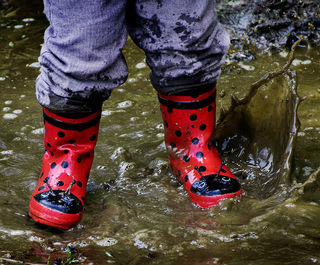Intelligence
Why Do British Accents Sound Intelligent to Americans?
Right or wrong, we all make social judgments based on accents.
Posted September 9, 2016

You like tomato and I like tomahto. I thought my 2½ year old daughter could not get any cuter until I heard her talking in a British accent. “My toy is so boooring” she exclaimed doing her best impression of the Queen’s English. This voice, coming from a child growing up in western Pennsylvania, might seem out of place until you realize her two favorite shows are currently Peppa Pig and Thomas and Friends. These are both widely popular programs on the tele and happen to be made in the UK.
Peppa is a young girl, or pig, who lives with Mummy Pig, Daddy Pig, and younger brother, George. She goes to school, plays with friends, argues with her brother, but most of all she loves jumping in muddy puddles with recurring characters like Granny and Grandpa Pig, Miss Rabbit, and Suzy Sheep.
My daughter is nearing obsession levels with the family that lives on a proper hill and falls over giggling at the end of every episode. And it’s all done in a fancy-fun British accent. They go to university instead of college. They go on holiday instead of vacation. “Naughty daddy. You didn’t put petrol in the car.” She learns new words like pound, stone, to-mah-to, and even “bathing costume” – a term I heard her use for the first time while reminiscing about our family’s recent trip to the beach. (Never have I referred to anyone’s bathing suit as a “costume” yet there she was talking as if everyone in Pittsburgh would understand.)
All of this is naturally endearing to adults within earshot and it got me thinking about the impact of living in the U.S. with a British accent.
Right or wrong, we use the information that accents provide to make social judgments. Accents can provide clues to geography which then fuels biased decision-making. We make both positive and negative assumptions about socioeconomic status, intelligence, and personality that may not be grounded in statistical reality. In other words, accents feed stereotypes. A French accent makes you haughty and highbrow in the eyes of many. However, that same voice may be an advantage if you are interviewing for positions in the fashion world or culinary arts.
British accents conjure stereotypes of high IQ and competence while Brooklyn and Southern accents get lower ratings on intelligence. This is not necessarily consistent with actual IQ scores, but the perception persists just the same. Psychologists also found that children living in Chicago rated northern accents as “smarter” and southern accents as “nicer.” Children from Tennessee, however, showed no such preference (Kinzler and DeJesus, 2012).
It’s worth noting that not all British accents are identical. They indicate geographic regions with very different cultural stereotypes attached to them. If you grew up in England you would be sensitive to these distinctions just like in the U.S. we can hear voices from Boston, Chicago, Brooklyn, and Texas. However, since many Americans can’t tell the difference between BBC, Cockney, or even Austrialian, New Zealand, and South African voices we just lump them all under one generic “British accent” label. For a great audio trip around the world of accents, check out the online Speech Accent Archive created by researchers at George Mason University.
Peppa Pig is not without her detractors. Apparently, baby brother George’s loud cry is being mimicked by too many young viewers. There are a number of angry moms on the internet proclaiming that Peppa is a bad influence and banning her (and her toys) in the house. This seems an extreme reaction and whatever faults Peppa might have there are plenty of other shows with imperfect role models. The important lesson is that all TV should be done in moderation. If your child is acting out entire cartoon scenes word for word it may be time to dial down the number of TV minutes per week.
Maybe it’s time to go outside and jump in some muddy puddles. “Oh Peppa, you cheeky little monkey.”
References
Kinzler, K.D., and DeJames, J.M. (2012) Northern = smart and Southern = nice: The development of accent attitudes in the United States. The Quarterly Journal of Experimental Psychology, 17, 1-13.
Weinberger, Steven. (2015). Speech Accent Archive. George Mason University. Retrieved from http://accent.gmu.edu


